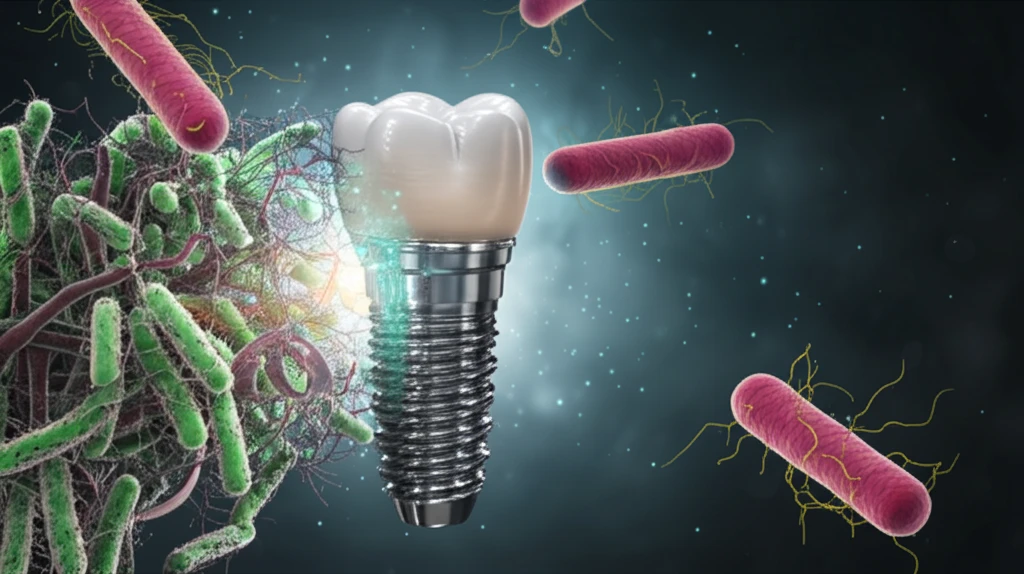
Guard Your Gums: Can New Peptide Tech Stop Implant Infections?
"Scientists are exploring how engineered peptides could revolutionize dental implants by preventing dangerous biofilm formation and ensuring long-term oral health."
Dental implants have transformed restorative dentistry, offering a reliable solution for missing teeth. Made primarily from titanium due to its strength and compatibility with body tissues, these implants provide a stable base for crowns, bridges, and dentures. However, despite high success rates, dental implants aren't immune to complications. Peri-implantitis, an inflammatory condition affecting the tissues surrounding the implant, poses a significant threat. It begins with inflammation of the soft tissues and can progress to bone loss, potentially leading to implant failure.
The primary culprit behind peri-implantitis is bacterial biofilm, a sticky film of microorganisms that accumulates on the implant surface. These bacteria trigger an immune response, leading to chronic inflammation and tissue damage. Traditional treatments involve mechanical cleaning, antibiotics, and, in severe cases, surgical intervention. But a proactive approach, preventing biofilm formation in the first place, could dramatically improve the long-term success of dental implants. New research is exploring innovative ways to modify implant surfaces, making them resistant to bacterial colonization.
Scientists are investigating the potential of antimicrobial peptides (AMPs), naturally occurring molecules with the ability to kill or inhibit the growth of bacteria. By engineering these peptides and attaching them to titanium implants, researchers hope to create a protective barrier against biofilm formation. This cutting-edge approach aims to reduce the risk of peri-implantitis, promoting healthier gums and ensuring the longevity of dental implants.
The Power of Peptide Engineering: A New Defense Against Biofilm

A recent study published in Materials Science & Engineering C details the development and testing of engineered chimeric peptides designed to combat biofilm formation on titanium implants. These peptides combine the properties of two key components: an antimicrobial peptide derived from human beta-defensin-3 (hBD-3) and a titanium-binding peptide (TBP-1). The hBD-3 portion targets bacteria, while the TBP-1 anchors the entire molecule to the implant surface. This ingenious design aims to create a long-lasting antimicrobial shield, preventing bacteria from attaching and forming harmful biofilms.
- Bind to titanium surfaces
- Kill common oral bacteria
- Prevent biofilm formation
- Exhibit low toxicity to human cells
The Future of Dental Implants: A Peptide-Coated Promise
This research offers a promising avenue for preventing peri-implantitis and improving the long-term success of dental implants. By coating implants with engineered antimicrobial peptides like TBP-1-GGG-hBD3-3, dentists may be able to significantly reduce the risk of infection and ensure the longevity of these valuable restorative devices. While further research and clinical trials are needed, this innovative approach holds the potential to transform dental implant procedures and improve the oral health of millions.
